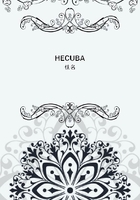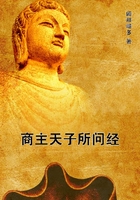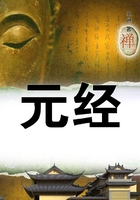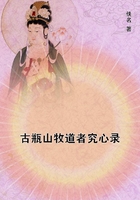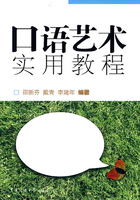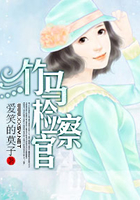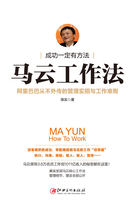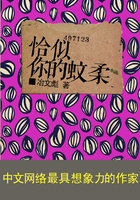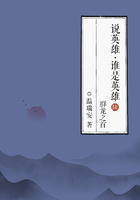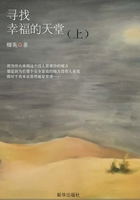Florence continued in disunion and disturbance. The dissensions continued among the party of Cosmo, in 1455, from the causes already related, which by his prudence, as we have also before remarked, he was enabled to tranquilize; but in the year 1464, his illness increased, and he died. Friends and enemies alike grieved for his loss; for his political opponents, perceiving the rapacity of the citizens, even during the life of him who alone restrained them and made their tyranny supportable, were afraid, lest after his decease, nothing but ruin would ensue. Nor had they much hope of his son Piero, who though a very good man, was of infirm health, and new in the government, and they thought he would be compelled to give way; so that, being unrestrained, their rapacity would pass all bounds. On these accounts, the regret was universal. Of all who have left memorials behind them, and who were not of the military profession, Cosmo was the most illustrious and the most renowned. He not only surpassed all his contemporaries in wealth and authority, but also in generosity and prudence; and among the qualities which contributed to make him prince in his own country, was his surpassing all others in magnificence and generosity. His liberality became more obvious after his death, when Piero, his son, wishing to know what he possessed, it appeared there was no citizen of any consequence to whom Cosmo had not lent a large sum of money; and often, when informed of some nobleman being in distress, he relieved him unasked. His magnificence is evident from the number of public edifices he erected; for in Florence are the convents and churches of St. Marco and St. Lorenzo, and the monastery of Santa Verdiana; in the mountains of Fiesole, the church and abbey of St. Girolamo; and in the Mugello, he not only restored, but rebuilt from its foundation, a monastery of the Frati Minori, or Minims. Besides these, in the church of Santa Croce, the Servi, the Agnoli, and in San Miniato, he erected splendid chapels and altars;and besides building the churches and chapels we have mentioned, he provided them with all the ornaments, furniture, and utensils suitable for the performance of divine service. To these sacred edifices are to be added his private dwellings, one in Florence, of extent and elegance adapted to so great a citizen, and four others, situated at Careggi, Fiesole, Craggiulo, and Trebbio, each, for size and grandeur, equal to royal palaces. And, as if it were not sufficient to be distinguished for magnificence of buildings in Italy alone, he erected an hospital at Jerusalem, for the reception of poor and infirm pilgrims. Although his habitations, like all his other works and actions, were quite of a regal character, and he alone was prince in Florence, still everything was so tempered with his prudence, that he never transgressed the decent moderation of civil life; in his conversation, his servants, his traveling, his mode of living, and the relationships he formed, the modest demeanor of the citizen was always evident; for he was aware that a constant exhibition of pomp brings more envy upon its possessor than greater realities borne without ostentation. Thus in selecting consorts for his sons, he did not seek the alliance of princes, but for Giovanni chose Corneglia degli Allesandri, and for Piero, Lucrezia de' Tornabuoni. He gave his granddaughters, the children of Piero, Bianca to Guglielmo de' Pazzi, and Nannina to Bernardo Ruccellai. No one of his time possessed such an intimate knowledge of government and state affairs as himself; and hence amid such a variety of fortune, in a city so given to change, and among a people of such extreme inconstancy, he retained possession of the government thirty-one years; for being endowed with the utmost prudence, he foresaw evils at a distance, and therefore had an opportunity either of averting them, or preventing their injurious results. He thus not only vanquished domestic and civil ambition, but humbled the pride of many princes with so much fidelity and address, that whatever powers were in league with himself and his country, either overcame their adversaries, or remained uninjured by his alliance; and whoever were opposed to him, lost either their time, money, or territory. Of this the Venetians afford a sufficient proof, who, while in league with him against Duke Filippo were always victorious, but apart from him were always conquered; first by Filippo and then by Francesco. When they joined Alfonso against the Florentine republic, Cosmo, by his commercial credit, so drained Naples and Venice of money, that they were glad to obtain peace upon any terms it was thought proper to grant. Whatever difficulties he had to contend with, whether within the city or without, he brought to a happy issue, at once glorious to himself and destructive to his enemies; so that civil discord strengthened his government in Florence, and war increased his power and reputation abroad. He added to the Florentine dominions, the Borgo of St. Sepolcro, Montedoglio, the Casentino and Val di Bagno. His virtue and good fortune overcame all his enemies and exalted his friends. He was born in the year 1389, on the day of the saints Cosmo and Damiano. His earlier years were full of trouble, as his exile, captivity, and personal danger fully testify; and having gone to the council of Constance, with Pope John, in order to save his life, after the ruin of the latter, he was obliged to escape in disguise. But after the age of forty, he enjoyed the greatest felicity; and not only those who assisted him in public business, but his agents who conducted his commercial speculations throughout Europe, participated in his prosperity. Hence many enormous fortunes took their origin in different families of Florence, as in that of the Tornabuoni, the Benci, the Portinari, and the Sassetti. Besides these, all who depended upon his advice and patronage became rich; and, though he was constantly expending money in building churches, and in charitable purposes, he sometimes complained to his friends that he had never been able to lay out so much in the service of God as to find the balance in his own favor, intimating that all he had done or could do, was still unequal to what the Almighty had done for him. He was of middle stature, olive complexion, and venerable aspect; not learned but exceedingly eloquent, endowed with great natural capacity, generous to his friends, kind to the poor, comprehensive in discourse, cautious in advising, and in his speeches and replies, grave and witty. When Rinaldo degli Albizzi, at the beginning of his exile, sent to him to say, "the hen had laid," he replied, "she did ill to lay so far from the nest." Some other of the rebels gave him to understand they were "not dreaming." He said, "he believed it, for he had robbed them of their sleep." When Pope Pius was endeavoring to induce the different governments to join in an expedition against the Turks, he said, "he was an old man, and had undertaken the enterprise of a young one." To the Venetians ambassadors, who came to Florence with those of King Alfonso to complain of the republic, he uncovered his head, and asked them what color it was; they said, "white": he replied, "it is so; and it will not be long before your senators have heads as white as mine." A few hours before his death, his wife asked him why he kept his eyes shut, and he said, "to get them in the way of it." Some citizens saying to him, after his return from exile, that he injured the city, and that it was offensive to God to drive so many religious persons out of it; he replied that, "it was better to injure the city, than to ruin it; that two yards of rose-colored cloth would make a gentleman, and that it required something more to direct a government than to play with a string of beads." These words gave occasion to his enemies to slander him, as a man who loved himself more than his country, and was more attached to this world than to the next. Many others of his sayings might be adduced, but we shall omit them as unnecessary. Cosmo was a friend and patron of learned men. He brought Argiripolo, a Greek by birth, and one of the most erudite of his time, to Florence, to instruct the youth in Hellenic literature. He entertained Marsilio Ficino, the reviver of the Platonic philosophy, in his own house; and being much attached to him, have him a residence near his palace at Careggi, that he might pursue the study of letters with greater convenience, and himself have an opportunity of enjoying his company. His prudence, his great wealth, the uses to which he applied it, and his splendid style of living, caused him to be beloved and respected in Florence, and obtained for him the highest consideration, not only among the princes and governments of Italy, but throughout all Europe. He thus laid a foundation for his descendants, which enabled them to equal him in virtue, and greatly surpass him in fortune; while the authority they possessed in Florence and throughout Christendom was not obtained without being merited.
同类推荐
热门推荐
口语艺术实用教程
口语艺术是语言艺术的重要组成部分,提高自身的口语艺术水平,有助于我们的工作、事业、社交和生活。本书是一本针对口语艺术训练的教材,包含了说话、演讲、朗读、朗诵、播音和配音等。本书的特色是:循序渐进的训练课目、案例教学、教学模块的设计,并配有相关教学内容的视频光盘。适合于各类大专院校学生和意欲提高口语水平的广大读者。腹黑竹马
所谓青梅竹马,就是相亲相爱共度一生,可是自从她遇见了梁自白之后,就断送了一生。偏偏有这么一个小丫头片子不给面子,软硬不吃。她曾小遥怕过谁,偏偏有个人就是她的地域,躲也躲不掉。片段一:某女正在奉家里老佛爷的命,跟一位可谓青年才俊的男子相亲,两人聊的很嗨皮。不料,某男可怜兮兮的跑过来,趴着她:”老婆,就算我们吵架了,你也用不着跑出来跟人家相亲吧?“青年才俊毫不留情的,不留一片云朵的转身就走,某女把某男拖到角落里一顿暴打。片段二:某男日思夜想设计一个超浪漫的求婚现场,集结各路人马,前来助阵,一番海誓山盟之后。“曾小遥,嫁给我吧!”某女脑子瞬间死机,半天没反应过来,转身想逃,发现四周都是他梁自白的人,想起昨晚丫给她发的短信,砰的一声坐在地上,“爷,给条活路。”当腹黑遇上腹黑,当火星撞上地球,当一个男人瞎了眼,那么就证明有个女人要遭殃了,此文男主腹黑,女主搞笑,青梅竹马文,有爱有爱……流离的萤火爱情
抬头看到的就是他那双孤傲的眼睛,散发着无数的寒气,让人不寒而栗,那张脸简直无懈可击,与哥哥相比似乎更胜一筹,但是他满脸的高傲和不屑,瞬间拒人于千里之外。那个冰山男依旧惜字如金,没有表情,我开始有些怀疑,老哥是不是认错人啦?呼呼,不理他们啦,走咯“答应我一个要求!”说得这么爽快?是早有预谋吗?可是不应该,总不至于他是策划者吧“要求?行,但是你不可以说…”委屈啊,莫名其妙地要答应冰山男一个要求。“不管如何,你都要信我!”那是你对我的乞求吗?一次次的错过,一次次的误会,他们之间是否经得起时间的考验?可爱善良的韩雪柔能够等到幸福钟声响起吗?面对昔日的男友、今时的未婚夫,她该如何抉择?求收藏,求推荐,求订阅,嘻嘻,我会再接再厉的~~~推荐——http://m.pgsk.com/a/450433/《邪魅总裁:女人,乖乖躺着!》推荐新作温馨治愈系列:听说,爱情回来过。http://m.pgsk.com/a/702512/寻找幸福的天堂(上)
“初夏的黄昏正是萤火虫的春天,夜色渐渐苏醒唤醒了又一群新的生命,月光朦胧,若隐若现的弯弯的月牙,它走我也走。我的脚步踏过小草们的头顶,惊起一群正在专心舞蹈的小小萤火虫,它们萦绕在我的身旁,对于我的到来,它们似乎更加的欢快了,我低着头专注的望着它们。

